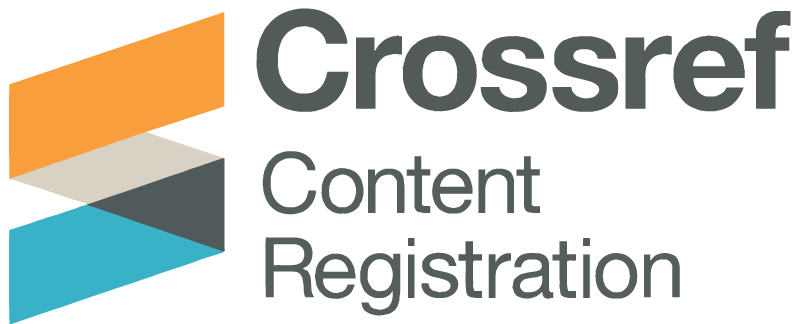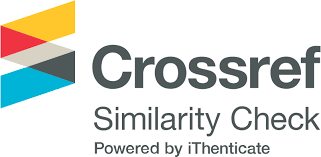تأثير الدافع لتعلم اللغة الإنجليزية على الرغبة في التواصل بها
DOI:
https://doi.org/10.59743/jau.v35i3.721الكلمات المفتاحية:
الرغبة في التواصل، الدافع، المتعلمون العرب، اللغة الإنجليزية كلغة ثانيةالملخص
تعتبر رغبة الطالب في التحدث والدافع وراء ذلك من العوامل المهمة التي ترتبط ارتباطا وثيقا بتعلم اللغة الإنجليزية كلغة ثانيةز تهدف هذه الورقة البحثية الي فحص العلاقة بين الرغبة في التواصل وتعلم اللغة الثانية. تم اجراء مسحا ضم عدد 180 متعلم من مختلف الدول العربية الدرارسين في الدجامعة العالمية الإسلامية بكولا لمبور بماليزيا. كما تم اجراء اختبار الارتباط والتنبأ لايجاد العلاقة بين الرغبة في التواصل باللغة الإنجليزية لدى طلاب العينة والدافع للقيام بهذا التواصل. أظهرت النتائج ان هنالك علاقة ارتباط وتنبأ بين الرغبة في التحدث والدافع من وراء هذه الرغبة حيث كان معامل الرتباط (r=.211, p<.01) و(F(1, 179 )= 8.274,R2=.044, B = .242, P=005<.01) علي التوالي. تعتبر الرغبة في التواصل والدافع من العوامل الرئيسية التي تسهل عملية التواصل عند تعليم وتعلم اللغة.
المراجع
Al Amrani, Said Nasser Ali (2019) Communication and affective variables influencing Omani EFL learners’ willingness to communicate. Journal of Research in Applied Linguistics 10(1):51-77
Clarke, et al. (2009). Student Intercultural Proficiency From Study Abroad Programs. Journal of Marketing Education, 31(2), 173–181. https://doi.org/10.1177/0273475309335583
Clement, R., Baker, S. C., & MacIntyre, P. D. (2003). Willingness to communicate in a
second language the effects of context, Norms, and vitality. Journal of Language and
Social Psychology, 22(2), 190-209.
Dewaele, Jean-Marc (2019).The effect of classroom emotions, attitudes toward English, and
teacher behavior on willingness to communicate among English foreign languag learners.
Journal of Language and Social Psychology 38(4):523-535.
Dörnyei, Zoltán (2003). Attitudes, orientations, and motivations in language learning:
Advances in theory, research, and applications. Language learning 53(SI):3-32.
Gardner, R. C. (1985). Social psychology and second language learning: The role of attitude
and motivation London: Edward Arnold Publishers.
Ieva, C., & Riamonda, M.-H.(2002). Developing students' intercultural communicative
competence: towards effective university learning environments. Socialinai mokslai,
(36), 48-56.
Kocaman, Orhan J Abant İzzet Baysal Üniversitesi Eğitim Fakültesi Dergisi
(2016).Communication barriers that junior and senior ELT students experience in the
process of learning a foreign language. 16(4):1779-1794.
MacIntyre, P. D., Baker, S. C., Clement, C.,& Donovan, L. A. (2003). Talking on order to
learn: Willingness to communicate and intensive language programs. The Canadian
Modern Language Review, 59(4).
Maharaja, Gita (2018). The Impact of Study Abroad on College Students' Intercultural
Competence and Personal Development. International Research and Review 7(2):18-41.
McCroskey, J., C. (1992). Reliability and Validity of the Willingness to communicate Scale. DOI: https://doi.org/10.1080/01463379209369817
Communication Quarterly, 40(1), 16-25.
Peng, J. E. (2007). Willingness to communicate in an L2 and integrative motivation among
college students in an intensive English language program in China. University of Sydney
Papers in TESOL, 2(33-59).Al Amrani, Said Nasser Ali
Communication and affective variables influencing Omani EFL learners’ willingness to communicate. Journal of Research in Applied Linguistics 10(1):51-77.
Clarke III, Irvine, et al.
Student intercultural proficiency from study abroad programs. Journal of Marketing Education 31(2):173-181. DOI: https://doi.org/10.1177/0273475309335583
Dewaele, Jean-Marc
The effect of classroom emotions, attitudes toward English, and teacher behavior on willingness to communicate among English foreign language learners. Journal of Language and Social Psychology 38(4):523-535. DOI: https://doi.org/10.1177/0261927X19864996
Dörnyei, Zoltán
Attitudes, orientations, and motivations in language learning: Advances in theory, research, and applications. Language learning 53(SI):3-32. DOI: https://doi.org/10.1111/1467-9922.53222
Maharaja, Gita
The Impact of Study Abroad on College Students' Intercultural Competence and Personal Development. International Research and Review 7(2):18-41.
Peng, Jian E
Willingness to communicate in an L2 and integrative motivation among college students in an intensive English language program in China. University of Sydney papers in TESOL 2(1):33-59.
Ushioda, Ema, and Zoltán Dörnyei
Beyond global English: Motivation to learn languages in a multicultural world: Introduction to the special issue. The Modern Language Journal 101(3):451-454. DOI: https://doi.org/10.1111/modl.12407
Wang, Hui, Anqi Peng, and Meagan M Patterson
The roles of class social climate, language mindset, and emotions in predicting willingness to communicate in a foreign language. System 99:102529. DOI: https://doi.org/10.1016/j.system.2021.102529
Wang, Miaoqing, Jaewoo Shim, and Heechul Lee
WTC and Motivation in English Learning among Chinese Senior High School Students. Studies in English Language & Literature 48(3):105-130.
Yashima, Tomoko, Lori Zenuk‐Nishide, and Kazuaki Shimizu
The influence of attitudes and affect on willingness to communicate and second language communication. Language learning 54(1):119-152. DOI: https://doi.org/10.1111/j.1467-9922.2004.00250.x
التنزيلات
منشور
كيفية الاقتباس
إصدار
القسم
الرخصة
الحقوق الفكرية (c) 2020 صالح علي النوري، عبدالناصر العامري، عبدالعزيز ثبوت، جميلة عمر

هذا العمل مرخص بموجب Creative Commons Attribution 4.0 International License.
تتعلق الحقوق بنشر وتوزيع البحوث المنشورة في مجلة الجامعة الأسمرية، حيث توضح للمؤلفين الذين نشروا مقالاتهم في مجلة الجامعة الأسمرية، كيفية استخدام أو توزيع مقالاتهم، والاحتفاظ بجميع حقوقهم في المصنفات المنشورة، مثل (على سبيل المثال لا الحصر) الحقوق التالية:
- حقوق الطبع والنشر وحقوق الملكية الأخرى المتعلقة بالمقال المقدم، مثل حقوق براءات الاختراع.
- استخدام البحث المنشور في مجلة الجامعة الأسمرية في الأعمال المستقبلية الخاصة بالمؤلفين، بما في ذلك المحاضرات والكتب، والحق في إعادة إنتاج المقالات لأغراضهم الخاصة، والحق في الأرشفة الذاتية لمقالاتهم.
- الحق في الدخول في مقال منفصل، أو للتوزيع غير الحصري لمقالاتهم مع الإقرار بنشره الأولي في مجلة الجامعة الأسمرية.
الحقوق الفكرية: وفق الرخصة الدولية للأعمال الإبداعية المشاعة، النسخة 4.0.
بيان الخصوصية: سيتم استخدام الأسماء وعناوين البريد الإلكتروني التي تم إدخالها في موقع مجلة الجامعة الأسمرية للأغراض المذكورة فقط والتي استخدمت من أجلها.









